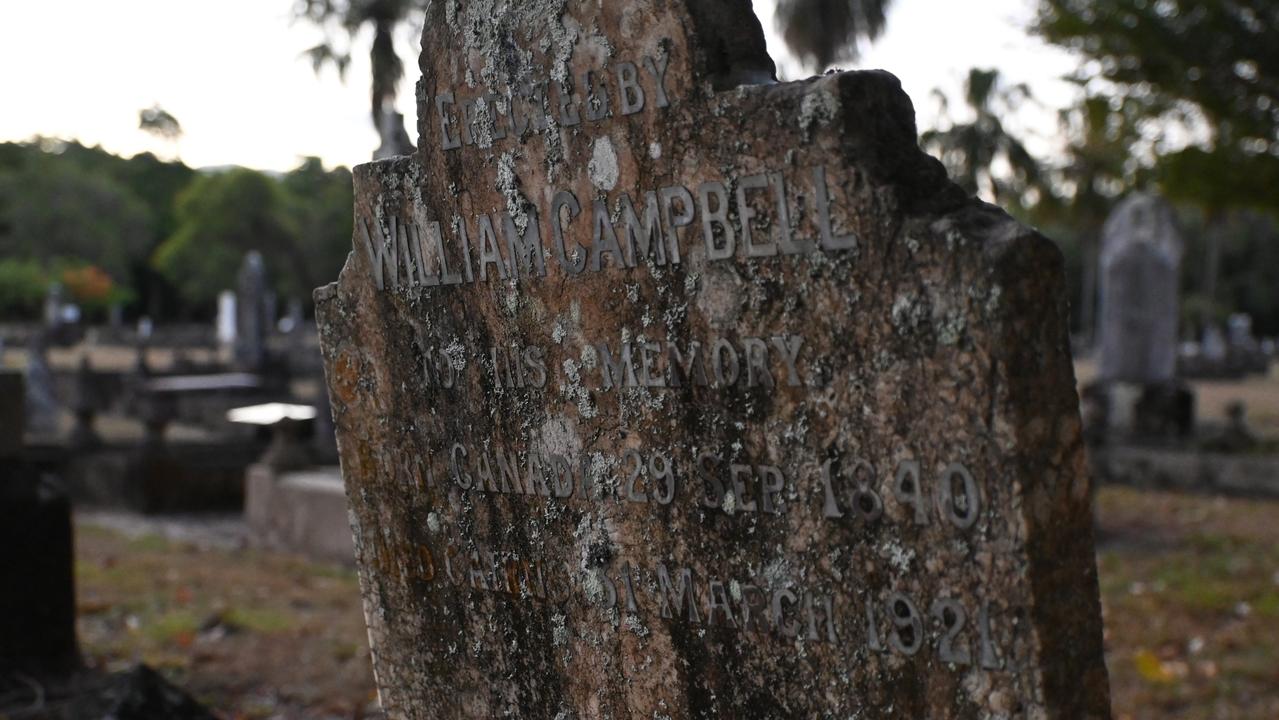The Digital Frontline: Inside SAPOL’s high tech cyber crime unit and its biggest collars
A crack team of cops uncovered a former officer turned dark web dealer, a love scam participant and million dollar fraudsters. These are their biggest catches.
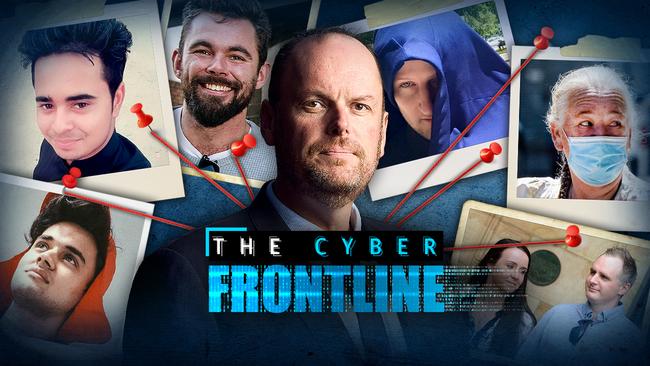
SA News
Don't miss out on the headlines from SA News. Followed categories will be added to My News.
Every day online scam artists, home and abroad, lone actors and intricate organised crime groups, target South Australians.
Whether they are romance scams, sextortion, investment cons, data breaches or crypto rorts, the cost of these crimes is staggering with individual losses in the hundreds of thousands of dollars seen each and every week, and some victims losing millions.
Standing at the cyber frontline between all technology users and a host of online criminals is a crack unit of officers attached to SA Police’s High Tech and Cyber Crime Group.
The team is hand-picked for their technical knowledge and expertise as well as policing nous and interest in cybercrime.
SCROLL DOWN TO SEE SA’S FIVE BIGGESTS CYBER CRIME CATCHES
Since its inception in 2019 the unit has collared the likes of former police officer Thomas Booker and shut down his dark-web drug marketplace, as well as swooping on a Pakistani money laundering ring operating out of the southern suburbs.
But behind the arrests are hundreds of victims trying to recover what they have lost, be that money, personal details or even explicit images, which was likely in the hands of international criminal groups.
Officer in charge of Finance and Cybercrime Investigation Branch Superintendent Adam Rice said speed was a crucial factor in their investigations.
“Early intervention can trigger a quick bank response which is important before the funds transit offshore,” he said.
“Realistically if you haven’t got that report in 72 hours it gets difficult, which is problematic because a lot of people don’t realise they are victims until five or six months later.
“They have already pumped their money into an investment scam and it is gone.”
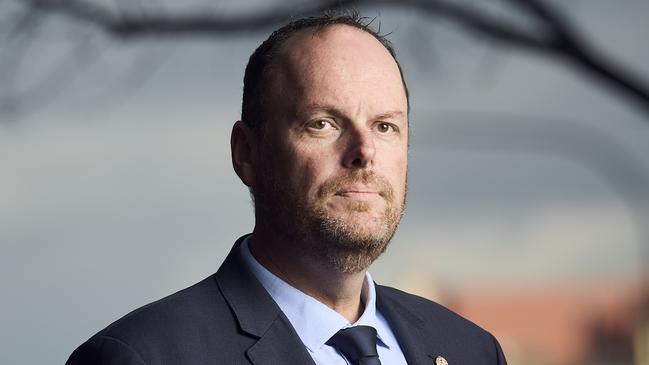
Superintendent Rice said online scams were becoming more prevalent as life continued to move online and cryptocurrency had changed the way stolen funds were moved.
“The speed at which they can transact in crypto and the difficulty in tracing and recovering has changed the game,” he said.
“It also sits in a largely unregulated market which makes it harder again.”
Officers from the unit have worked with crypto exchanges in Singapore, the UK and Nigeria to recover stolen funds.
The work of the unit begins with notifications from Report Cyber, the Federal platform for reporting cyber crime.
Every seven minutes an Australian reports that they have been the victim of a cyber crime.
The Australian Cyber Security Centre received more than 76,000 reports nationally in the 2021-2022 financial year, an increase on previous years. More than 4500 of those were directed to SA law enforcement.

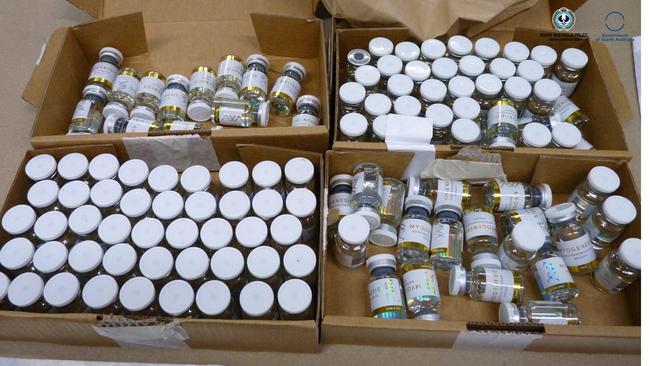
However, cyber crime in particular is thought to be under reported as many people approach their banks first and may not inform police.
The South Australian reports which account for several thousand a year are triaged within the unit.
“We are monitoring those feeds and triage by vulnerability of the victim, crime type and ability to recover funds and stop further harm,” Superintendent Rice said.
“Sextortion for example gets a very high response because of the vulnerability of the victims.
“Obviously if there are investigation avenues to arrest offenders then that is a high priority as well, but you don’t see lots of apprehensions in this space because many offenders are overseas actors or potentially interstate.”
Cyber Crime Investigation Section Senior Sergeant Adam Serafini said the first point of call for people who suspect they may have been scammed was their bank and then police.
“When it goes off shore there is a very limited window to recover the money,” he said.
While the arrests are limited, the unit has collared significant cyber criminals. These are their biggest arrests.
Thomas Booker and Ryan Suri-Tucker – Underline Cost
Once a police officer, Thomas Booker turned to crime to fund a spiralling drug addiction, dragging Ryan Suri-Tucker into his wake.


Booker created an online drug enterprise stretched across multiple dark web sites and operating under the name Underline Cost.
Booker’s online presence became the subject of a wide ranging cyber investigation which tracked the accounts to a post office box in suburban Adelaide where officers watched as thousands of LSD tabs from the Netherlands were delivered.
Undercover officers made controlled buys from Booker online before eventually pouncing in November 2021, raiding a house in Kings Park.
As officers came through the front door Booker and Suri-Tucker were in the middle of packaging drugs to complete online orders.
Prosecutors accepted that Suri-Tucker had been subservient to Booker in the operation and had acted as an employee.
Booker eventually pleaded guilty to more than 50 drug and money laundering charges while Suri-Tucker pleaded guilty to 17 charges.
Booker was jailed for 21 years, with a non-parole period of 15 years and two months. He has launched an appeal against that sentence.
Suri-Tucker was jailed for more than five years, with a 2 and a half year non-parole period, for his lesser role in the operation.
More than a million dollars in assets including crypto currency, luxury alcohol and a silver ingot were seized and forfeited to the state.
Hassan Rana – International money launderer
When police raided Hassan Rana’s Mawson Lakes home they found $65,000 in cash – a suspicious amount for a full-time student who occasionally worked as an Uber driver.
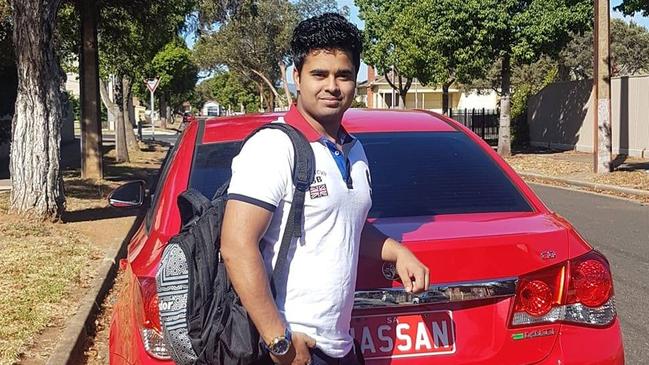
Rana was later found guilty of 20 counts of money laundering relating to a complicated Telstra scam targeting customers across Australia.
District Court Judge Heath Barklay found that Rana had been acting in tandem with his brother – who was based in Pakistan – and was an integral part of the scheme, including handling the phones, money and co-ordinating couriers on the ground.
During the trial the court heard that Rana would receive iPhones ordered through unwitting Telstra customer’s accounts.
The scheme involved bribing courier drivers and then onselling the phones.
Police began watching Rana and introduced an undercover officer who was filmed conducting controlled buys with the young student.
Rana initially came to the attention of counter-terrorism authorities through the flow of funds to Pakistan, but was soon found to be “intimately involved” in the scheme.
He has yet to be sentenced.
Emily Walker, Justin Lees and Adam Jones – Operation Captcha
Acting as a trio, Emily Walker, Justin Lees and Adam Jones operated an interstate identity scam which stole at least $18m from hundreds of victims across the country, becoming SA’s largest cyber crime.


The scale of the fraud was so large, and the tendrils of the offending so wide spread that police found enough data to keep officers on their trail for years.
There came a time when they had to draw a line in the sand and decide what charges they were going to pursue.
Jones, a former political staffer to Michelle Lensink, teamed up with Lees through the dark web.
Police began watching Jones after seeing suspicious crypto currency transactions in his name.
The surveillance led police to the trio and their expansive crimes.
The trio used stolen network passwords purchased off the dark web to enter business networks and install a script – a small section of code designed to perform a specific, often imperceptible function in a computer system.
The hackers would access the network remotely and would sit and watch – sometimes for months – as the business conducted their trade.
Then they would activate the script which would augment the bank details of the payroll, funnelling cash into their own accounts, before changing the details back.
The money would be moved through mule accounts before being converted into cryptocurrency.
A single crypto wallet linked to the trio showed more than $10m had passed through it.
Jones was sentenced to 11 years in prison in NSW with a non-parole period of 6 and a half years. Walker was sentenced to four years and 11 months with a non-parole period of two years and 10 months. She will likely be deported to the UK on release.
Lees was sentenced to eight years and nearly seven months, with a non-parole period of five years.
Dianne Davis – Lonely hearts scammer
Dianne Davis became the quintessential victim of a cyber fraud – someone who is themselves turned into a criminal.

Davis pleaded guilty to 55 counts of money laundering relating to $540,000 which flowed through her bank account as part of the tale end of a romance scam.
Prosecutor James Watson said during sentencing submissions Davis had not profited from her crimes but was still a vital cog in the operation.
Davis was initially scammed by an online persona claiming to be a US serviceman named Charles. She handed over $5000 as part of the scam and Charles went quiet for two months.
When he returned he the scammer claiming to be Charles, and a second profile claiming to be a barrister, convinced Davis to allow them to use her account to siphon funds.
Despite her remote position in the scam, victims who lost money said Davis was “evil in disguise” and had left one victim unable to pay for her 14-year-old grandson’s funeral.
Davis was sentenced in March this year to two years, one month and 14 days in prison with a non-parole period of 14 months.
The sentence was fully suspended, though Davis was ordered to pay more than $22,000 in victims of crime costs.
Christopher George – Operation Firefox
Posing as an investment banker, Christopher George targeted the victims of frauds – promising to scour the world in search of their lost funds.
Instead the money was spent on hotels and heroin.
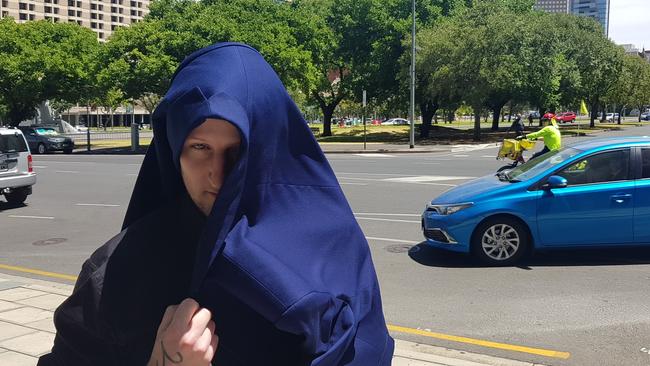
George pleaded guilty to four aggravated counts of deception following a lengthy fraud investigation.
He would ask clients to transfer money to a series of accounts, some containing as little as a 10 cents, but would withdraw the money straight away and spend it.
George wove complicated stories to both his victims and the courts – concocting stories involving gold bars, oil tankers and investment dividends as well as blaming a mysterious Dubai-based businessman.
George was sentenced to eight years in prison with a non-parole period of four years and 10 months.
More Coverage
Originally published as The Digital Frontline: Inside SAPOL’s high tech cyber crime unit and its biggest collars



